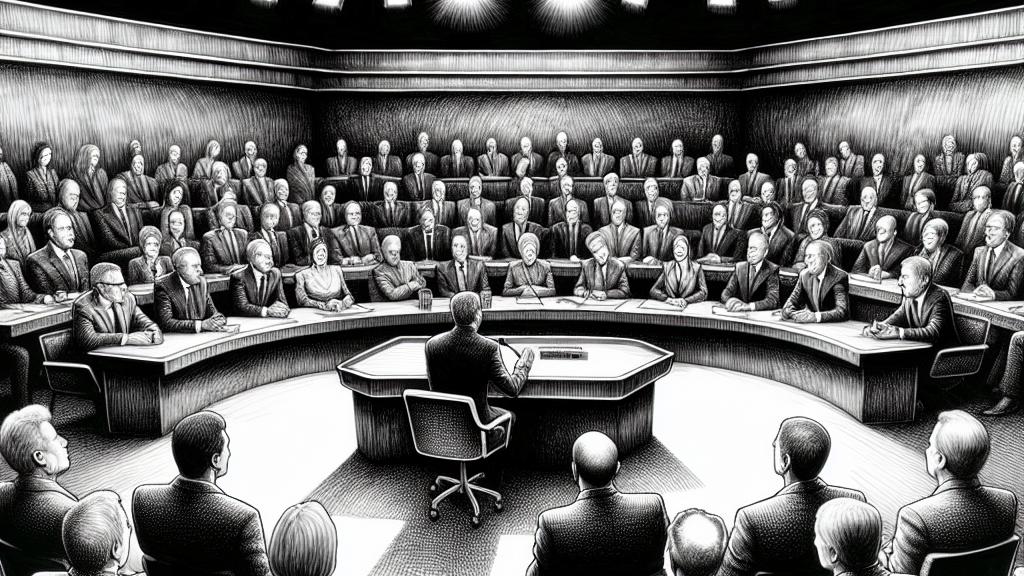Silence Among Candidates: The Unsettling Atmosphere of the Presidential Election
Overview
- A disquieting silence enveloped Japan's Liberal Democratic Party candidates during a critical debate on the Unification Church.
- When prompted to support a re-investigation of past relationships, not a single candidate raised their hand, amplifying tensions.
- Public backlash was swift, intensifying concerns about transparency and accountability in the upcoming election.

Context of the Silence
In a tense discussion aired on TBS's 'News23,' the absence of response among Japan's ruling Liberal Democratic Party candidates took center stage. On September 17, the atmosphere grew increasingly strained as the host posed a pivotal question regarding the role of the Unification Church in past politics, particularly its connections with former Prime Minister Shinzo Abe. The church has been embroiled in controversy for decades, making this inquiry particularly relevant. When asked whether they would back a re-investigation, a collective silence washed over the candidates; not one hand was raised. This moment not only shocked the viewers but also exposed a deep-seated reluctance to confront complex and divisive political realities.
Public and Media Reaction
The immediate reaction from the public was one of astonishment and frustration. On social media platforms, users echoed sentiments such as 'What are they afraid of?' and 'Is this the leadership we can trust?' These poignant expressions captured a widespread sense of disappointment. Meanwhile, the media took the moment to task, with commentators analyzing the implications of this silence. Discussions erupted, highlighting the need for political leaders to engage transparently with the electorate. For instance, prominent political analysts pointed out that voters are more likely to support candidates who embrace accountability rather than shy away from hard questions. It became evident that this silence might reflect a broader issue within the party, one that voters are increasingly unwilling to overlook.
Political Ramifications
In terms of political fallout, the consequences of this silence could be substantial as the election approaches. Candidates, by evading critical dialogue, risk alienating a significant segment of the electorate. Take Sanae Takaichi, for example; she reaffirmed her intention to visit Yasukuni Shrine while concurrently dismissing calls for a deeper inquiry into the Unification Church. Such contradictions are unlikely to reassure voters about her commitment to openness. As the election draws near, it is clear that constituents are demanding authentic engagement with pressing issues. Candidates who fail to connect meaningfully with the electorate may find themselves losing ground as public expectations for transparency and integrity continue to rise. Therefore, the silence experienced during this debate could serve as a turning point in the candidates' campaign strategies, urging them to rethink their approaches and reconnect with the voters.

Loading...